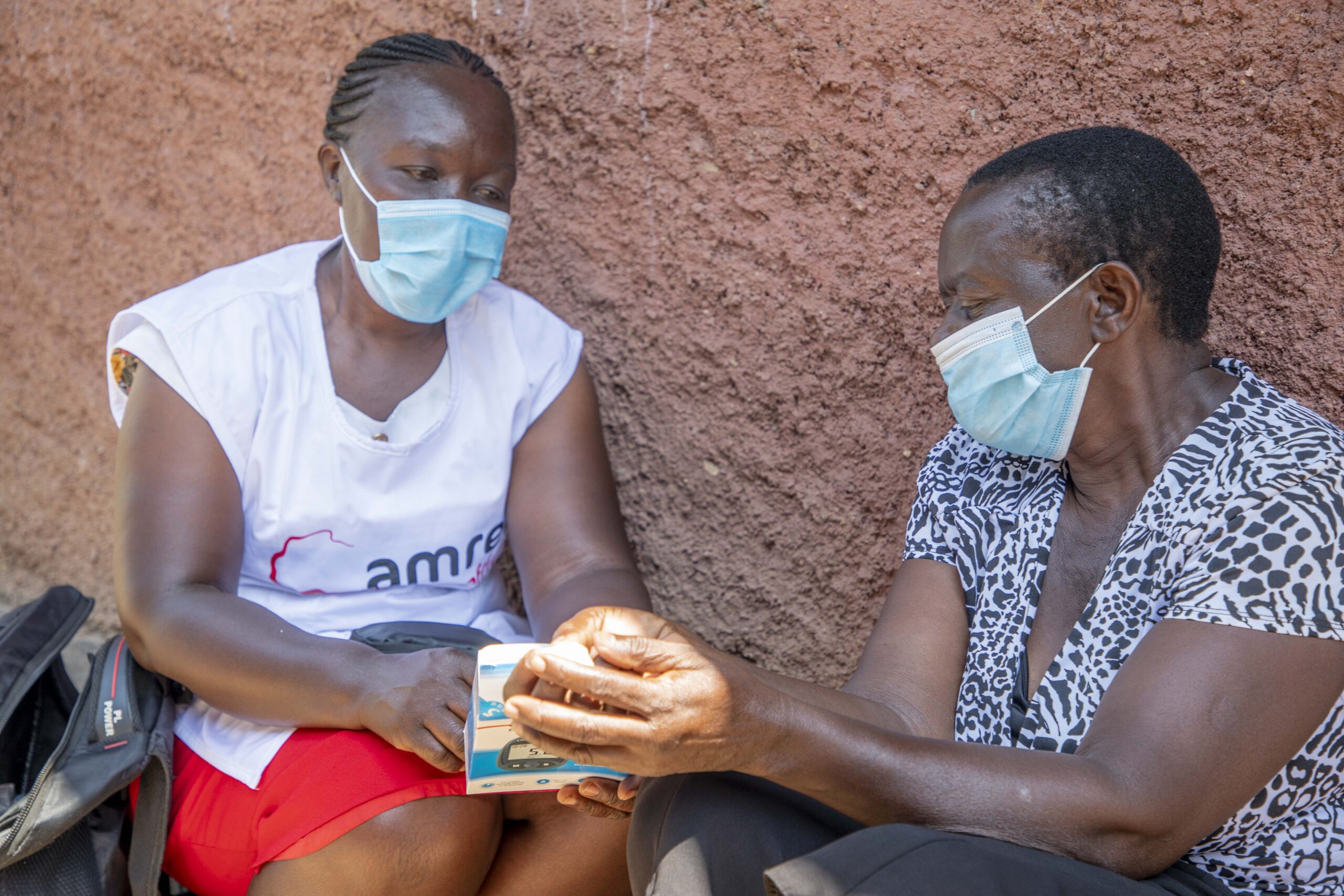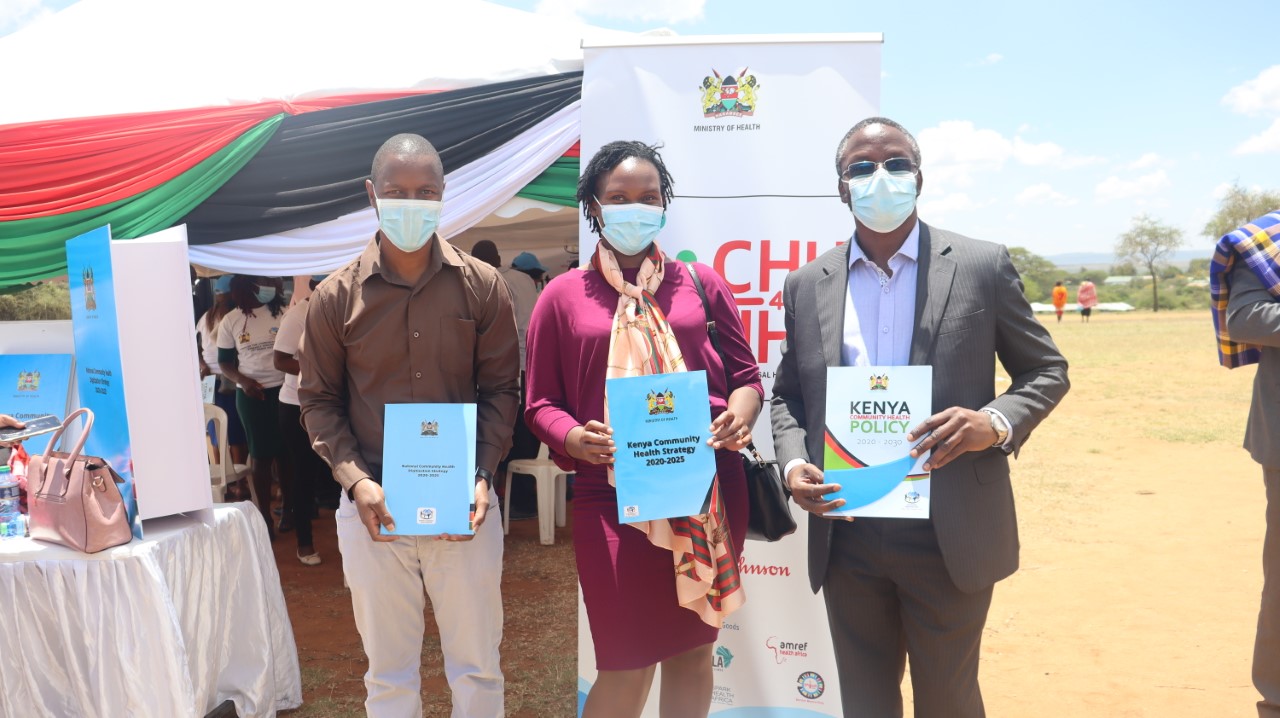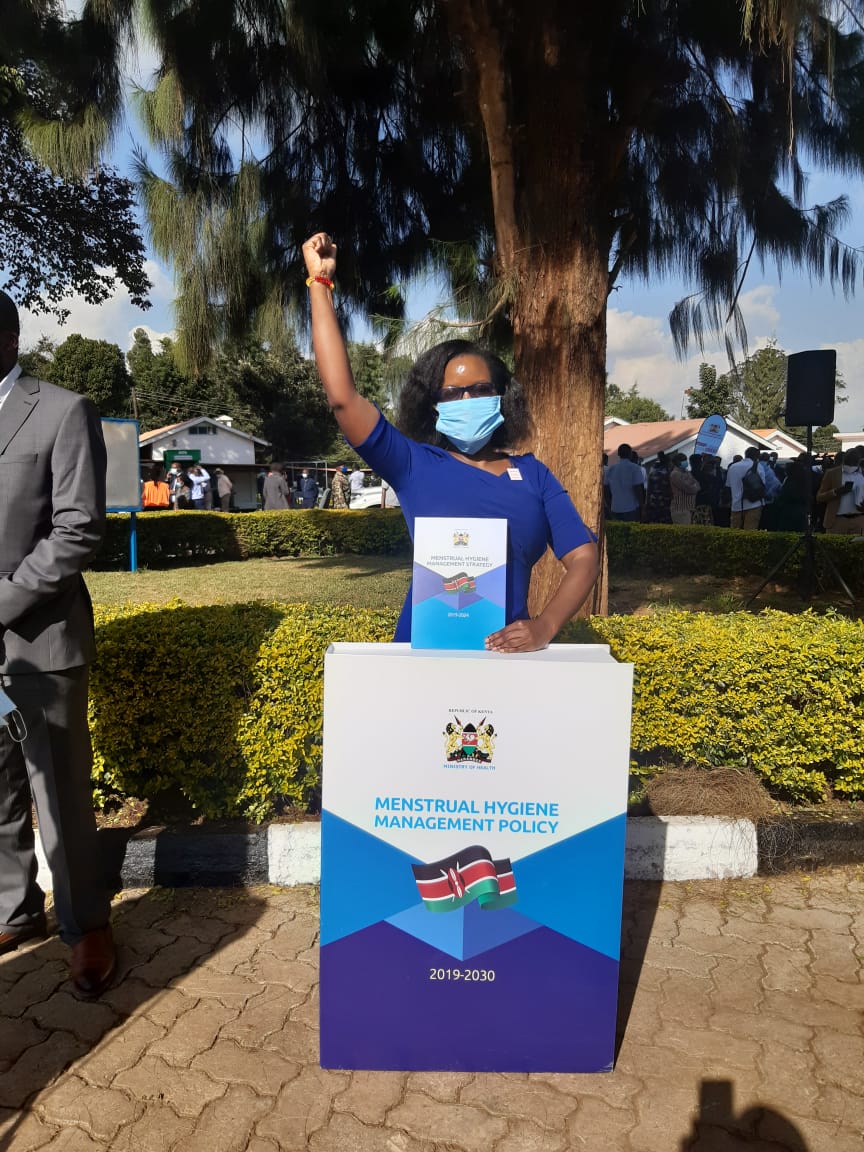Gideon Obuya – Peer Educator at Riruta Health Centre, Dagoretti
Thursday, 13 August, 2020

Gideon Obuya welcomes the visitors of the Riruta Health Center, in Dagoretti, a neighbourhood with high levels of poverty and unemployment on the outskirts of Nairobi, with a smile on his face. He likes to deal with people.
Maybe that is why this 23-year-old television actor decided, five years ago, to become a peer educator for young people of his neighbourhood and improve the situation of the boys and girls surrounding him.
“I want to be a change-maker in my community,” he says smiling. “And I think I’ve changed something”.
This change involves improving the sexual and reproductive health of the youth, offering them truthful, serious and objective information. Gideon performs his duties as a peer educator at the Riruta Health Center on a voluntary basis, combining it with his profession as an actor. He makes a style of street theatre called “magnetic theatre”: short and simple plays, with a plot taken from everyday life but with a histrionic touch that captures the attention of the spectator who passes through the street.
Together with Maureen and Lindah, also peer educators of the Riruta Health Center, Gideon performs in crowded places performances with comedy and improvisation in which he represents an irresponsible father escaping from his duties and abandoning his son. The girls represent the angry mother and a friend. Both shout and reprimand him, give him the child, run away, come back, gesticulate, keep shouting. The scene lasts about five minutes. In the end, Esther and Fusia, CHW and peer educators take the improvised stage and explain to the amazed audience that this is a fiction.
Today it is time to get the parents’ attention. Once they are aware that the scene is fictional, they get information about free and anonymous awareness sessions on sexual and reproductive health for young people and adolescents at the health centre around the corner. Finally, they are encouraged to attend and tell it at home.
The five people involved in the “magnetic theatre”, actors and informants, carry out their volunteer work within the project on sexual and reproductive health among young people, funded by the Madrid City Council and coordinated by Spain and Kenya Amref offices. The project aims to mitigate the number of teenage pregnancies, STDs, substance abuse and school abandonment among the youth in this area.
Gideon’s work doesn’t end when the play is over. He spends hours at the health centre, where he talks to boys and girls about family planning and contraception or sensitizing teenagers not to leave their partners alone if they get pregnant. He knows how to promote sexual and reproductive health among young people: he speaks their language, knows their doubts, does not show a hierarchical position from a health professional to patient, and guarantees them respect and confidentiality. Within the health centre, the conversations between the young people and Gideon take place in the so-called “friendly corners”, places that are specifically used for an intimate and relaxed conversation, where the mentors talk to boys and girls of their age. In these friendly spaces, the prejudices stay outside.
Gideon expands the responsibility of sexual health not only to teenagers but also to their parents. “Parents need to educate more,” he says. He thinks that they should assume a greater role as guides in their children’s behaviour. He also believes the education system needs to incorporate sexual and reproductive health programs.
For some time now, in Dagoretti, some mornings a young man speaks loudly to attract the youth, parents and teachers attention, wanting to talk to them about sex with respect and seriousness. The change is real.




